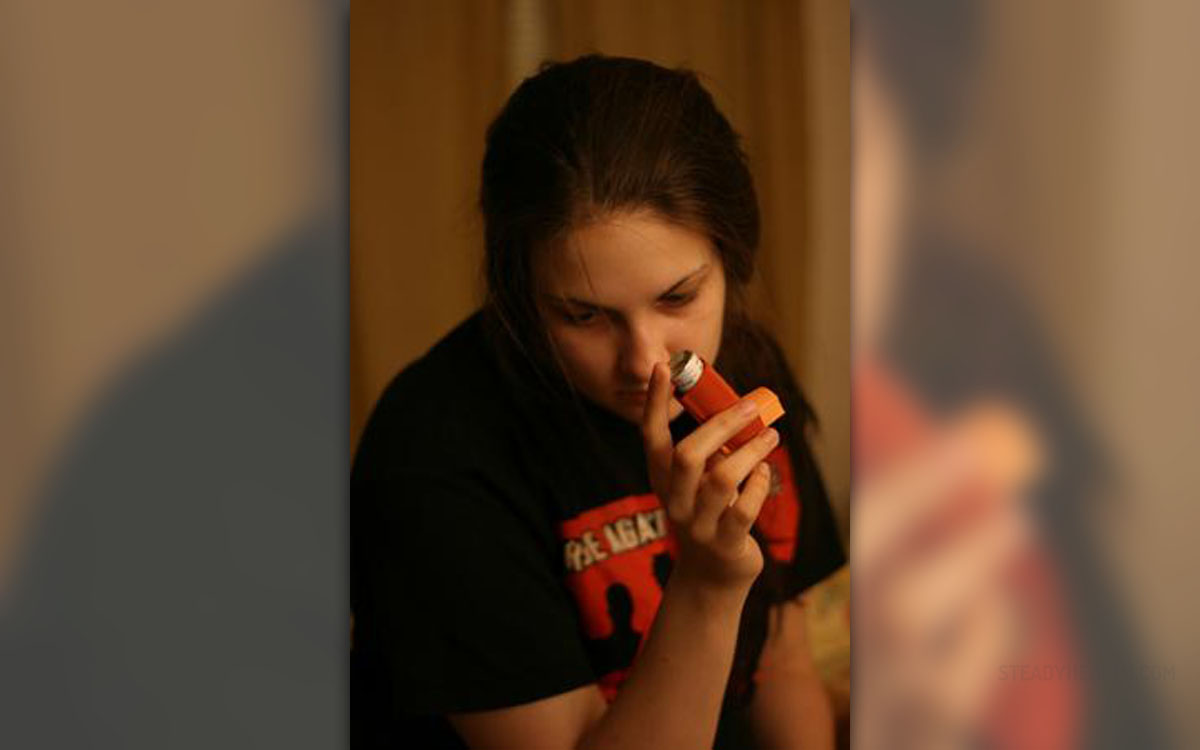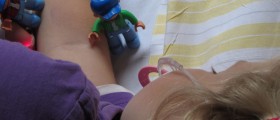
Acute bronchitis is a condition in which the airways in the lungs become inflamed and swollen. It commonly occurs in winter and it usually starts in the upper respiratory system, meaning in the nose and the throat, and then descends to the lungs, causing coughing and difficulty breathing.
This is not a dangerous illness and in generally healthy children it goes away on its own anytime between five days and two weeks.
Causes of acute bronchitis is children
The main cause of acute bronchitis is usually an infection. In most cases the infection is caused by a virus, but it can also be bacterial or fungal.
Acute bronchitis can also be caused by polluted air, dust, smoke or allergies. Children who spend a lot of time around smokers are more likely to suffer from bronchitis.
Bronchitis is more common in children who have other medical conditions, such as allergies, asthma, heart condition, frequent tonsil problems or sinus problems.
Signs and symptoms of acute bronchitis in children
A child who is suffering from acute bronchitis will most probably cough a lot. Coughing is the single most prominent symptom of this illness. It starts as a dry cough and over the following days it develops into productive cough, when the child starts coughing up phlegm. Coughing usually gets worse at night.
Mild chest pain, wheezing from the nose, especially while exhaling and shortness of breath are other common symptoms of acute bronchitis. Other, less characteristic but still common symptoms may include fever, chills, fatigue, muscle ache, runny nose, irritability and crying.
Diagnose and treatment for acute bronchitis in children
The diagnose for acute bronchitis is usually done based only on the symptoms the child is experiencing. In some cases doctors prefer confirming the diagnose with blood tests and x-rays. These tests are usually done to exclude another condition, like pneumonia.
In most cases acute bronchitis is a mild condition that goes away on its own within a week or two. In order to speed up the recovery, the child should get plenty of rest, eat well and drink a lot of fluids.
It helps to use a humidifier or a vaporizer in the child’s room. It is very important not to smoke around the children with bronchitis. The air in their room should be fresh and at a comfortable temperature.
Large amounts of liquid are highly recommended. They will help clear the air passages and break down the phlegm in the lungs.
Cough drops or pain killers can be given to the child to ease the symptoms, but only after consulting a pediatrician.
Antibiotics are prescribed only if acute bronchitis is caused by bacteria, but this needs to be confirmed through tests.

















Your thoughts on this
Loading...